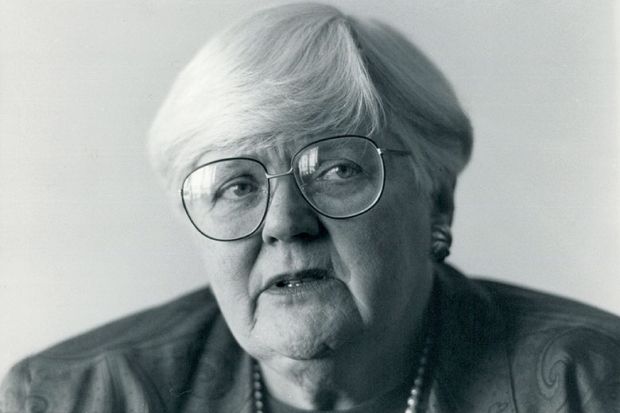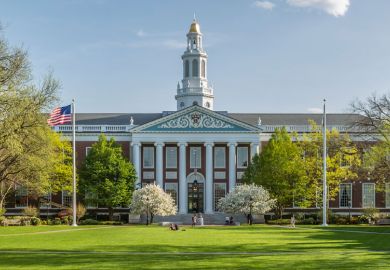A leading advocate for women’s education, who presided over Radcliffe College’s merger with Harvard, has died.
Mary Maples Dunn was born in Sturgeon Bay, Wisconsin on 6 April 1931 and studied history at William & Mary (1954) before going on to an MA (1956) and then a PhD (1959) on US colonial history at Bryn Mawr College. She started teaching while still working on her doctorate, fascinated, as she once put it, by “a place that was pretty much run by women and for women” and played a pioneering role in establishing women’s history as a serious academic discipline. She went on to rise through the ranks at Bryn Mawr to dean of the undergraduate college in 1978 and then academic deputy to the president in 1981.
Four years later, Professor Dunn was appointed president of Smith College (1985-95), another women’s liberal arts college. She raised more than $300 million (£215 million), doubled the size of the endowment and attracted record numbers of applicants while also widening the curriculum to give greater coverage to non-Western and neglected American cultures. Daniel Horowitz, Mary Huggins Gamble professor emeritus of American history, described her leadership style as “encompassing, breezy, direct and full of life. She had a rare ability to create around her – in both small and large settings – a sense of excitement and camaraderie, a real feeling of loyalty.” He also noted that she “never let the presidency interfere with her teaching”.
Although she had planned to retire after her decade at Smith, Professor Dunn decided to accept a position at Harvard University as head of the Schlesinger Library on the History of Women in America. This led to an even more significant role in 1999 as interim president of Radcliffe College (then also a women’s liberal arts college) during its formal merger with Harvard, where she skilfully helped to negotiate a deal that addressed the contentious issue of faculty appointments.
“Mary always believed firmly in what women could do,” said Harvard president Drew Gilpin Faust, a former student and close friend of Professor Dunn’s. “She made that clear both in what she said and in the model she represented. She was so widely liked and respected that she was kind of an emollient in the midst of the controversy surrounding the transition.”
After a short period as a fellow at the new Radcliffe Institute for Advanced Study (2000-01), Professor Dunn and her husband, Richard Dunn, jointly took on the role of co-executive officer of the American Philosophical Society until they retired in 2007. She died on 19 March and is survived by him, two daughters and three grandchildren.
Register to continue
Why register?
- Registration is free and only takes a moment
- Once registered, you can read 3 articles a month
- Sign up for our newsletter
Subscribe
Or subscribe for unlimited access to:
- Unlimited access to news, views, insights & reviews
- Digital editions
- Digital access to THE’s university and college rankings analysis
Already registered or a current subscriber?







